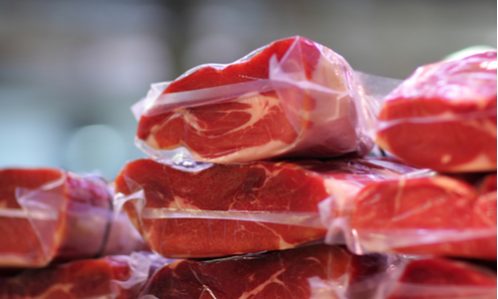America’s largest beef packers, JBS, Tyson, Cargill, and National Beef Packing, must face antitrust litigation over an alleged industry wide scheme to widen the “meat margin” between the cost of live cattle and the price of processed beef, a federal judge in Minneapolis ruled Tuesday, September 14.
Judge John R. Tunheim denied the defendants motion to dismiss the class-action antitrust filed in April 2019 by R-CALF USA. The case may move forward in the US District Court for the District of Minnesota, where the four meatpackers are accused of forcing the cost of cattle down, and the price of beef up, through cartel tactics like coordinated procurement and “slaughter restraint.”
The lawsuit alleges the four packers violated the Sherman Antitrust Act of 1890 by engaging in a price-fixing conspiracy, and alleges the packers violated the Packers and Stockyards Act as well as the Commodity Exchange Act.
Tunheim’s order allows the antitrust case to proceed to discovery so Plaintiffs may test their claims.
The suit alleges that from January 1, 2015, through the present, the four packers conspired to depress the price of fed cattle they purchased from American ranchers, thereby inflating their own margins and profits.
The class action lawsuit seeks to recover the losses suffered by two classes believed harmed by the packing companies’ alleged conduct. The first class includes cattle producers who sold fed cattle to any one of the firms from January 2015 to the present. The second class consists of traders who transacted live cattle futures or options contracts on the Chicago Mercantile Exchange from January 2015 to the present. The complaint, which plaintiffs claim is supported by witness accounts, including a former employee of one of the packers, trade records, and economic evidence, alleges that the packers conspired to artificially depress fed cattle prices through various means.
Want more news? Subscribe to CPI’s free daily newsletter for more headlines and updates on antitrust developments around the world.

